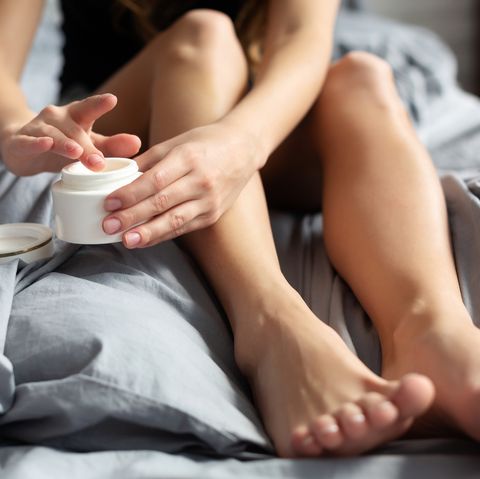Dhealthwellness.com – If you suffer from frequent itching during the night, you’re not alone. It’s a common problem, and it can be caused by various reasons, from the way our bodies sleep to skin conditions such as eczema. Some remedies for skin itching at night include herbal supplements or topical steroid creams. For more relief, try sleeping with a fan running in your bedroom. In addition, you may want to try progressive muscle relaxation and yoga to help you relax and get a good night’s rest.
Causes of Itchy Skin at Night
There are many possible causes for skin itchiness, ranging from simple sensitivity to a dangerous condition such as diabetes or a chronic skin disease. Various types of itching can occur at different times of the day, and the timing doesn’t necessarily relate to the severity of the itch. However, some people experience the intense urge to scratch and rub their skin while sleeping. Regardless of the cause, it’s important to seek a doctor’s diagnosis.
The best way to determine the exact cause of skin itching at night is to consult a medical professional. The most common cause is eczema, but there are other causes, such as food allergies or iron deficiency anemia. People with anemia often experience skin itching at night, as well as other symptoms such as shortness of breath or a fast heartbeat. In rare cases, a person may experience chronic idiopathic pruritis. A team of physicians can identify underlying causes of skin itching at night and recommend the appropriate treatment.

Other effective treatments for skin itching at night include using nonprescription corticosteroid creams or topical anesthetics. In addition, storing topical products in the refrigerator increases their soothing effect. Additionally, patients may undergo psychological treatment, including cognitive-behavioral therapy, which aims to address unhealthy thought patterns and emotions. In addition to a prescription for the appropriate anti-itch medications, a dermatologist can prescribe a customized treatment plan based on their medical history and skin type.
Anti-Inflammatory Lotion Used To Treat Itchy Skin
Although most people experience skin itching during the night due to dry skin, there are other causes such as stress, eczema, or medical conditions. Regardless of the cause, home remedies and topical creams can make your skin much more comfortable. For those with dry skin, hydrocortisone cream will help stop the inflammatory chemicals in the skin and help prevent itching at night. In addition, lubricating creams and anti-inflammatory lotions can be used as a treatment.
If skin itching at night is bothering you and keeping you up at night, it is probably due to your poor sleep quality. Your body’s thermoregulation during sleep is affected by temperature fluctuations that may be due to an increased risk of itch or pruritus. A high level of TEWL can increase the chance of pruritus. TEWL can also affect the body’s ability to protect itself from pruritus.

Some studies suggest that the underlying mechanisms of skin itch are not well understood but are connected to circadian rhythms. Trans-epidermal water loss (TEWL) increases at night and decreases during the day. Consequently, the epidermal barrier does not function properly during the night. Itching is associated with increased PGE2, which can be treated with topical acetylsalicylic acid. Some researchers suggest that a dysfunction in the cytokine cascades may be the cause of nocturnal pruritus.
Recommend the Right Moisturizer for Skin Type
There are many causes of skin itching. Dry skin is one of them. A good moisturizer can counter this by making your skin feel hydrated. If you have dry skin, moisturize it with a perfume-free or hypoallergenic moisturizer. Consult a dermatologist if your skin is too dry. If dry skin is the cause, use a fragrance-free moisturizer to prevent the problem. A dermatologist can recommend a moisturizer for your skin type.

If you have a skin infection such as eczema, you may also want to consult a doctor. There are many options available, including antifungal medications or topical calcineurin inhibitors. Besides these, you may want to try barrier repair moisturizers. In addition, you can also try antihistamines to combat the itchiness that occurs at night. Although eczema is not curable, it is best to avoid scratching and work with a dermatologist to solve your skin issue.
Reference:
